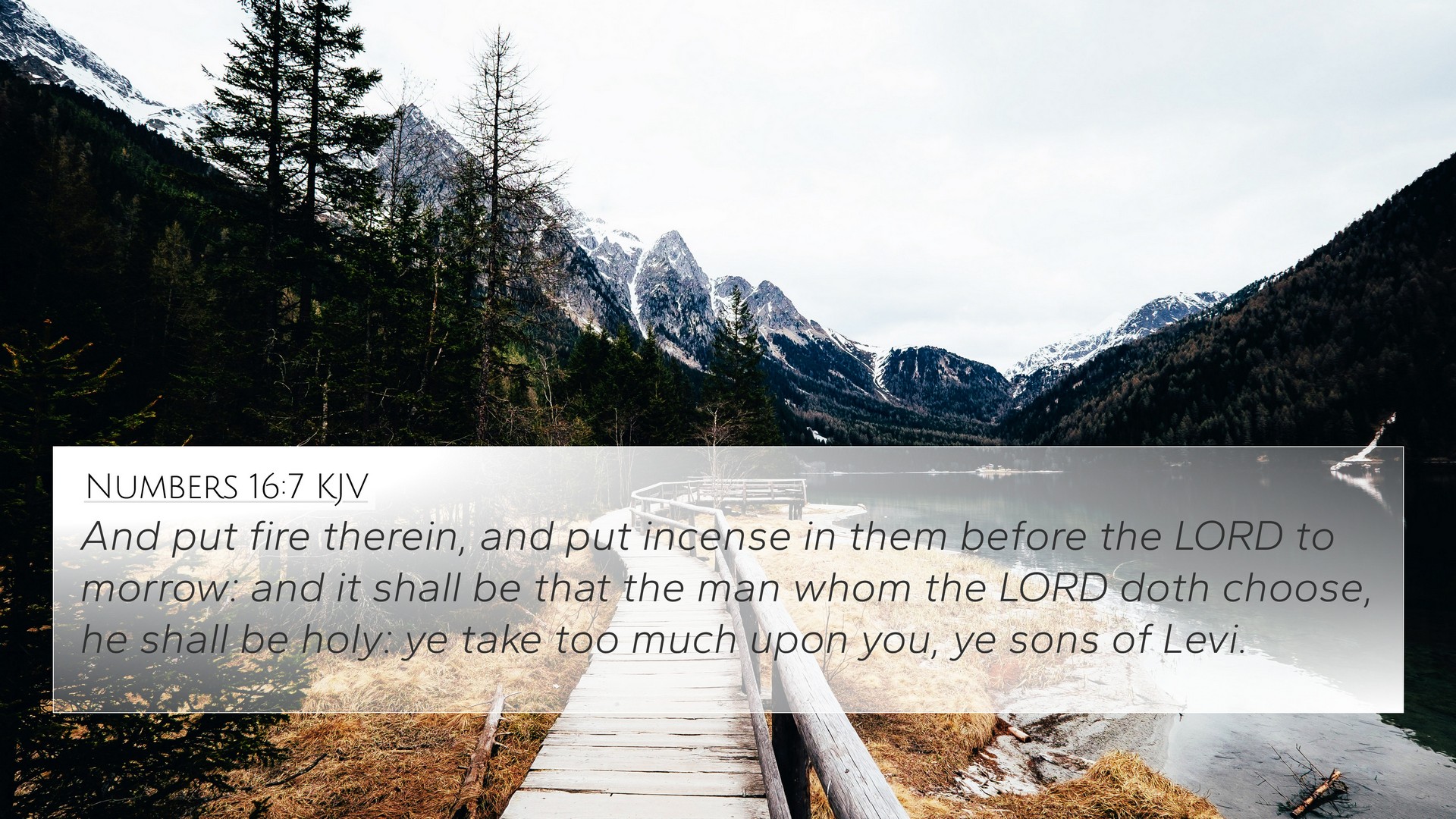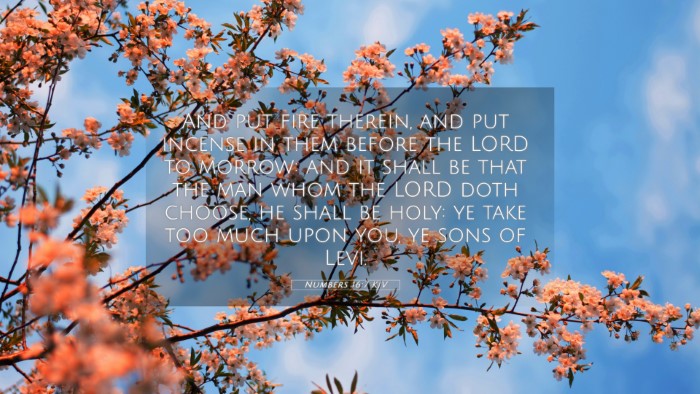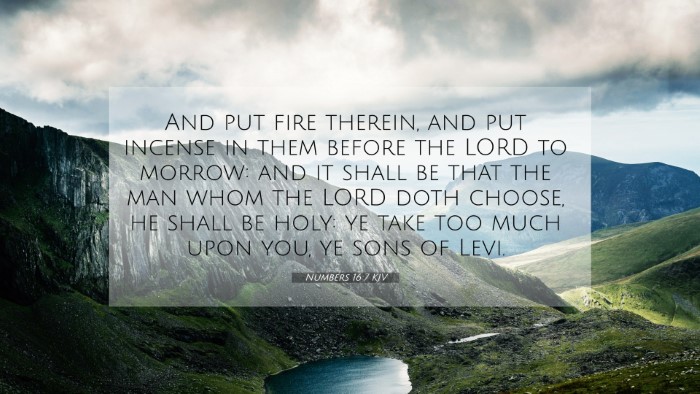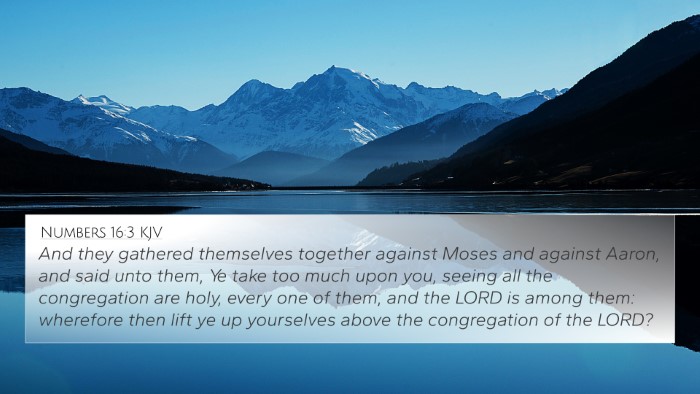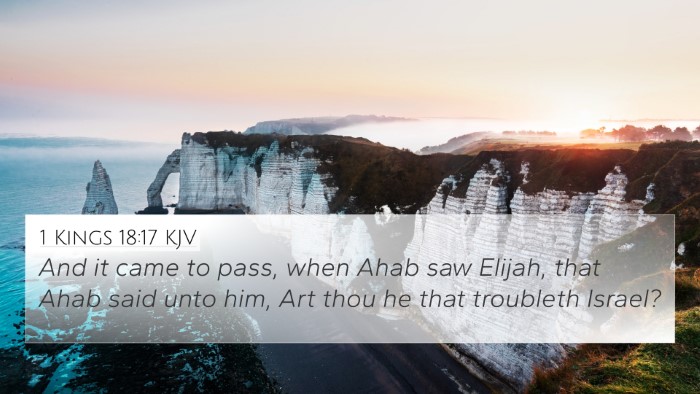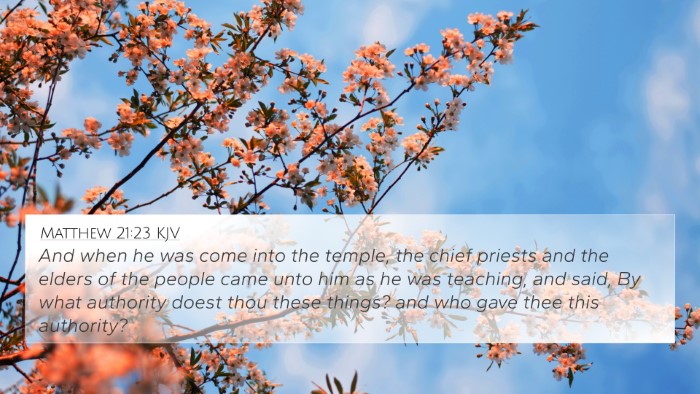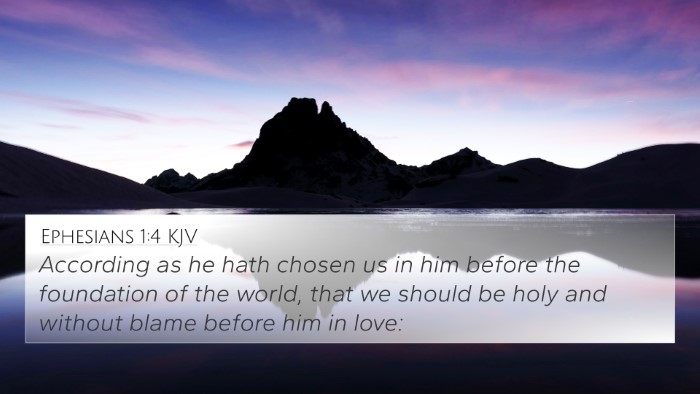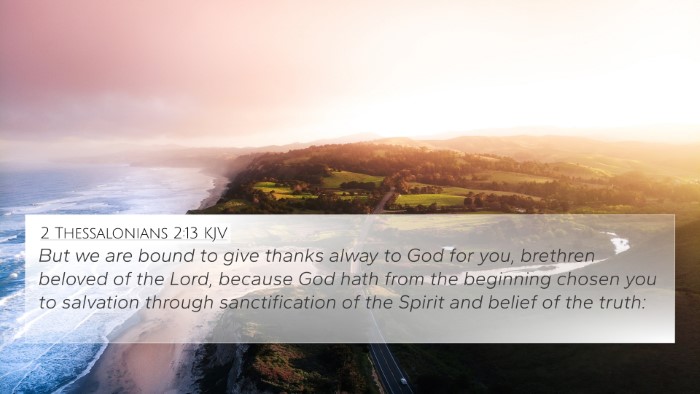Understanding Numbers 16:7
Bible Verse: Numbers 16:7
“And put fire in them, and put incense in them before the Lord tomorrow: and it shall be that the man whom the Lord doth choose, he shall be holy: ye take too much upon you, ye sons of Levi.”
Summary of Insights
Numbers 16:7 addresses a critical moment when Korah and his followers challenge the authority of Moses and Aaron. In this verse, Moses instructs the rebels to prepare censers for incense, indicating a test of their legitimacy as priests before the Lord. Several themes arise, which are explored in public domain commentaries, providing a deeper understanding of this verse.
Commentary Insights
- Matthew Henry:
Henry emphasizes the nature of God's selection and holiness. He remarks that the act of offering incense in this context is a divine test, illustrating that true priesthood is not determined by personal ambition but divine appointment. He warns against the folly of self-exaltation versus God’s chosen servants.
- Albert Barnes:
Barnes notes that the “fire” here represents the divine presence and judgment. He highlights the seriousness of the occasion, explaining that the act of bringing incense could bring forth God’s judgment on those not appointed by Him. The phrase 'ye take too much upon you' shows their arrogance in challenging God’s ordained leadership.
- Adam Clarke:
Clarke views this passage as a pivotal moment in the narrative of rebellion against divine authority. He draws parallels between Korah's rebellion and later examples in Scripture, suggesting that those who rise against God’s anointed do so at their own peril. He points out the importance of recognizing God’s appointing authority as vital for holiness and service.
Cross-References Related to Numbers 16:7
- 1 Peter 2:9: Emphasizing the royal priesthood of believers, contrasting the Old Testament priesthood with the New Testament calling of every believer to serve as priests unto God.
- Revelation 8:3: Discussing the angel offering incense with the prayers of the saints, linking incense as a symbol of prayer and divine communication.
- Hebrews 5:4: Highlighting that no one takes upon themselves the honor of being a priest, unless called by God, reinforcing the need for divine appointment.
- Exodus 30:9: Instructions against offering strange incense, directly correlating with Moses' call to authenticity in worship and priesthood.
- Leviticus 10:1-2: The story of Nadab and Abihu, whose unauthorized fire resulted in death as a serious warning against improper worship practices.
- Numbers 3:10: God's command regarding the priesthood being set apart, reinforcing the sanctity of divine choice and authority.
- Malachi 2:4-7: Speaking to the importance of priests knowing and teaching God's ways, connecting to the accountability of those leading in worship.
- Psalm 106:16-17: Mentioning the rebellion of Korah and the consequences, thus providing historical context to the narrative in Numbers.
- Romans 12:1: Offering our bodies as living sacrifices, noting the continuity of the concept of sacrifice from the Old Testament to the New Testament.
- Matthew 23:5: Jesus’ warnings to the religious leaders about their hypocrisy, relating to the themes of pride versus holy service.
Thematic Connections and Analysis
This verse, along with its cross-references, shows a powerful theme of divine authority and the consequences of human ambition. The connections between Old Testament laws and New Testament practices highlight God's unchanging nature in matters of holiness and service.
In the Old Testament, the priesthood's role is clearly defined, and any deviation from God's command results in severe consequences, as seen with Korah's rebellion. This sets a precedent that is echoed in the teachings of Jesus and the letters of Paul, where believers are called to a higher standard of holiness.
The repetitive warnings against self-appointment in places of leadership resonate throughout the biblical narrative, establishing the crucial understanding that God alone has the authority to choose His servants. This is especially significant for those involved in church leadership today, reminding them of the weight of their responsibilities.
Conclusion
The study of Numbers 16:7 provides rich insights into the nature of authority, holiness, and divine choice. Engaging with cross-references not only deepens the understanding of this specific passage but also enriches one's grasp of the overarching themes present in Scripture. Those seeking to use Bible cross-referencing tools and Bible concordance resources will find a wealth of interconnected knowledge that enhances both personal faith and communal teaching.
